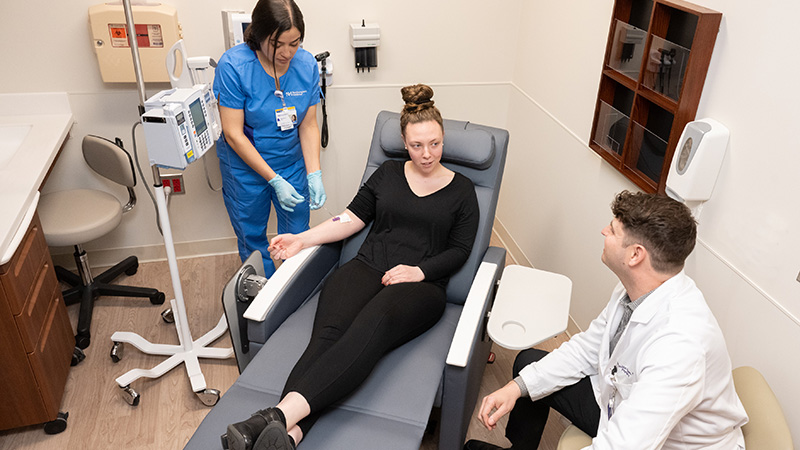Traveling With Loved Ones With Dementia
Published January 2021
Making for Safe Travels
When a loved one has dementia caused by Alzheimer’s disease, the thought of traveling seems more difficult. In Alzheimer’s dementia, remote memory, or information from the past, is one of the last functions to deteriorate in the brain. This translates to the need for routine and repetition, and a sudden disruption in that routine can lead to confusion.
Northwestern Medicine Neuropsychologist Sandra Weintraub, PhD, says, “There are different stages of Alzheimer’s disease, so you may need a different approach depending on the stage.” In the earliest stages of illness, most individuals are able to cope with travel. Dr. Weintraub continues, “With mild impairment, be aware of the potential for confusion. For example, don’t let your loved one go to the bathroom alone in an unfamiliar environment.”
For those in more advanced stages of disease, Northwestern Medicine Geriatrician Lee Lindquist, MD, PhD, MBA, says, “Families of patients with advanced dementia should contact the physician to see if additional medications should be brought with in case of an emergency."
The right preparation and planning can make traveling with a loved one go smoothly.
Assess the Situation
Before packing your bags, assess your situation. Is your loved one in late stages of dementia, which may require more hands-on assistance? Do you need an additional family member to join you? This will help ensure that you have the level of assistance needed for the day of traveling to make things go smoothly.
Also, plan flights and road trips according to your loved one’s needs. Try to avoid layovers, and allow plenty of time to get through security checkpoints. If you’re driving, allow for frequent breaks and limit the trip to no more than four hours, if possible.
Tips for Caregivers:
- Have medical information on hand, including up-to-date documents, and make sure you have necessary medications and other supplies.
- Since wandering can occur in late stages, stay with your loved one at all times. Make sure they wear an identification bracelet in the event you become separated.
- If flying, opt for a time of day that is best for your loved one. Notify the airline you are flying that your loved one has special needs. They can provide you with a wheelchair as well as provide additional assistance through various checkpoints.
- Limit luggage so you have less baggage to handle, allowing you to hold their hand or assist them with tasks as needed.
- If driving, bring activities or items that are familiar for them for the ride. Have their favorite snacks on hand.
For Additional Help
For individuals who are experiencing mild symptoms of memory loss, but are still functioning independently, you may be interested in obtaining a diagnostic evaluation at the Neurobehavior and Memory Clinic of Northwestern Medicine. Research opportunities are also available for individuals with very mild cognitive impairment.
Caregivers, remember you are not alone. As the disease progresses, additional help and support may be necessary. Northwestern Medicine offers a comprehensive program to help you and your loved one.
- Sandra Weintraub, PhD, Northwestern Medical Group, Neurobehavior Clinic, and Lee A. Lindquist, MD, MPH, MBA, Northwestern Medical Group, Geriatric Medicine





